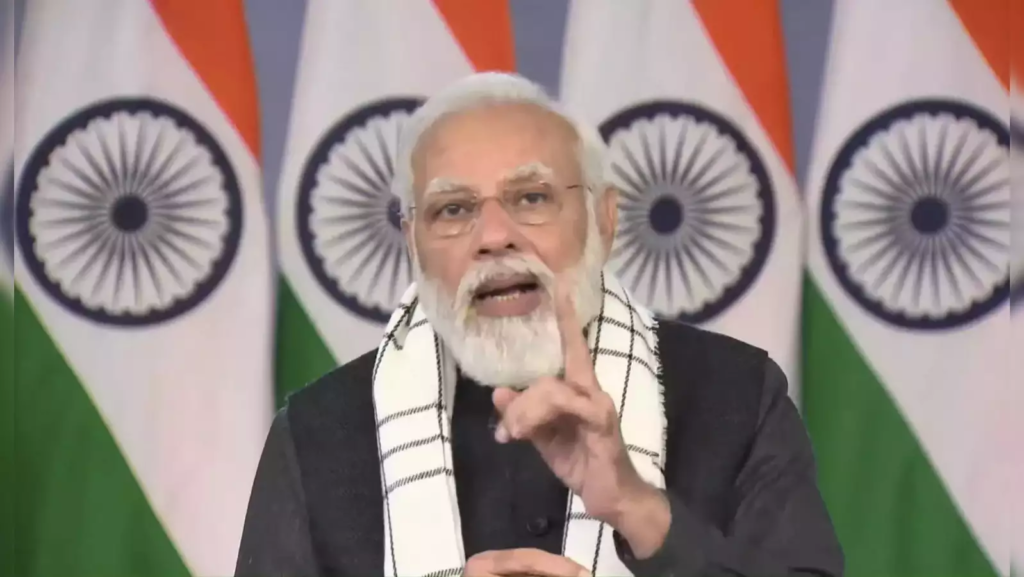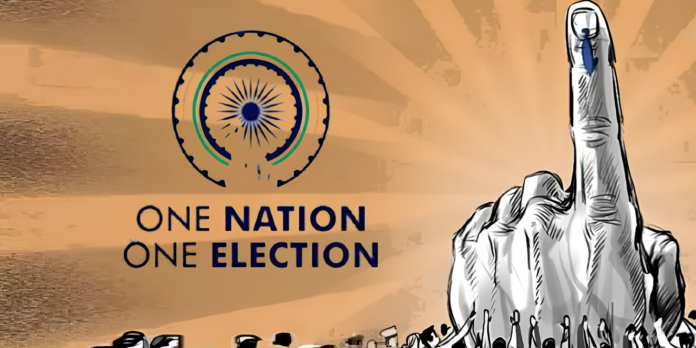New Delhi: The idea of “One Nation, One Election” has become one of the most debated topics in the political reforms in India in recent years. This concept has been strongly advocate by the current Prime Minister Narendra Modi and it envisions that there would be one election for Lok Sabha and all state assemblies. Although this has several benefits but it has questioned the democratic process, logistics and federalism. However according to sources, the govt is seriously considering towards turning the concept into a reality.
Prime Minister Modi’s Push for One Nation One Election

In 2014, this issue was highlighted by Prime Minister Narendra Modi within a few months after coming to power. President Ramnath Kovind supported this as well and the committee that was formed for this recommended simultaneous elections for state assemblies and parliament, followed by local bodies within a time period of 100 days. PM Modi showed his commitment regarding this in his independence day address from Red Fort, where he appealed to all political parties to join hands for this decision.
Student Perspectives on One Nation One Election: Pros and Cons
Talking to True To Life News, student of LLB from Delhi University Arya states that this concept can help save time during election process, however another student Ravi mentions it would rather complicate things as there are lack of resources in our country for the conduction of all election at a time. Also during elections, duties are assigned to teachers and several other government official and if the working stops in entire country during election process, then that would majorly affect the economy.
The Historical Background of Simultaneous Elections in India
Looking at the history part of One Nation, One Election, India used to conduct concurrent elections after independence in the first three general elections in the year 1952, 1957, 1962 simultaneously. However this system got discontinued in 1968-69 when several state assemblies dissolved and this lead to separation of election schedules. After this, the elections have been held separately for central as well as state govt. leading to a continuous election cycle across the country.
Government’s Plan to Implement One Nation One Election During Modi’s Current Term
According to govt sources, “One Nation, One Election” will be implemented in current term of Modi Govt. hoping from support from other political parties as well, especially the members of National Democratic Alliance (NDA). Government sources has also indicated for the census exercise to be conducted super soon.
Modi Government’s Achievements Tied to One Nation One Election
Soon PM Modi is going to complete 100 weeks of current term of Modi 3.0 and to celebrate this Govt. Ministries are planning to showcase achievements of third term of Modi Govt. through the display of work of last 10 years under him including infrastructure, education, departmental developments etc. Among these achievements that will be displayed included the 3 lakh crore worth spending on infrastructure, government reforms along with frequent review and reform in GST (Goods and Service Tax) and the NEP (New Education Policy). Few parties whose ideolody doesn’t matches with Mr. Modi also supported him in these policies and reforms.
Advantages of One Nation One Election
Among the achievements to be showcased include ₹3 lakh crore worth of infrastructure spending, governance reforms including the implementation and frequent review and reform of the Goods and Services Tax regime, and the New Education Policy (NEP), which sources were quick to point out was not even opposed by the Left parties, otherwise ideologically opposed to the Modi government and the BJP.
Those supporting ONOE mentions that on synchronising several elections, it would reduce election related expenses and also there would not be MCC (Model Code of Conduct) everytime, since it hampers policy making and several developmental projects.
Criticisms and Challenges Facing One Nation One Election
Critics however argue about the the challenges of constitutional amendments along with the undermining of federalism and the implications regarding democratic representation.
Constitutional Amendments Needed for One Nation One Election
Although Govt. is currently focusing on implementing this, which is clearly visible in his several speeches. However the timing is quite critical as India is in phase where national and state elections are held almost annually, keeping political parties in continuous election mode. Loksabha elections result came and then soon after that in same year 2024, several state elections are lined up. Hence, to address this electoral fragmentation, the Modi govt. stresses on implementing ONOE which would reduce political disruptions.
The Future of Elections in India with One Nation One Election
In order to implement ONOE, several provisions in the Constitution needs amendment, like Article 83(2), the tenure of the Lok Sabha, along with Article 172(1) which defines the term of state assemblies. In situation of premature dissolution of a state assembly or the central government, there requires some provisions in place to ensure synchronization of elections again. However experts have raised concerns by mentioning that such amendments could be complex and time-consuming and a broad political consensus across states and political parties are required to continue this. There are confusion regarding timing of elections, tenure, logistics and security as well which needs to be clearly discussed and planned for a better execution.
by Aparna Jha
reporting for
